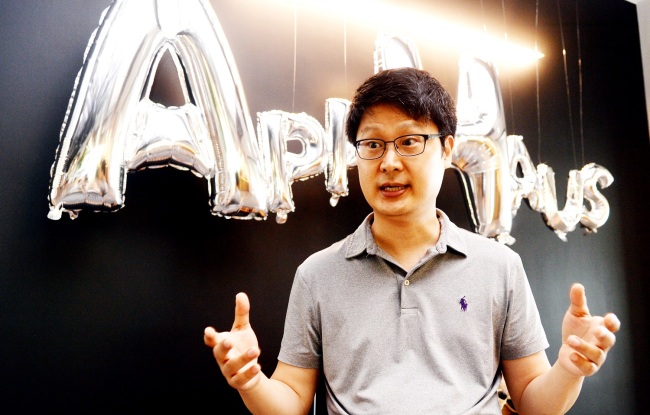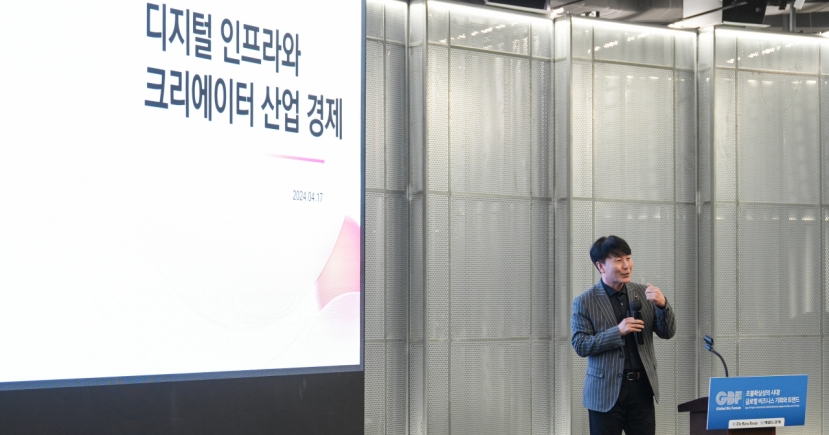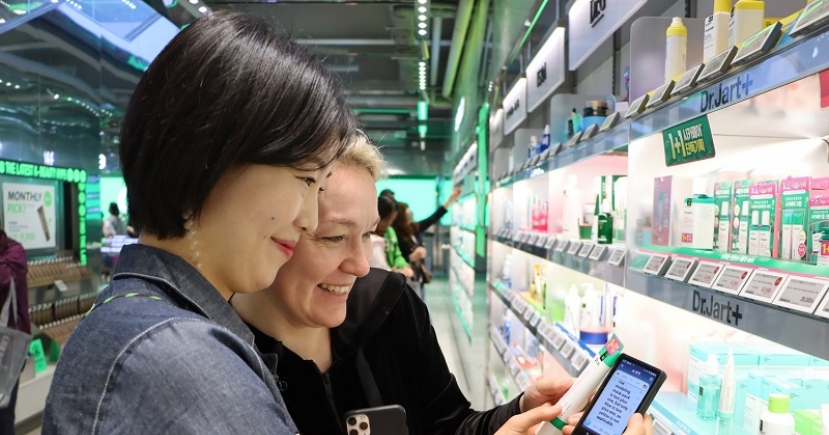Startups
[INTERVIEW] Changing the way we work
[THE INVESTOR] The Korean economy has hit a wall.
Conventional management methods have run their course.
Aging systems, where corporate owners run their businesses with employees accustomed to their ironclad control, no longer work and are making it difficult to find new opportunities and growth in this digital age.
This is where Christopher Han comes in with SAP Design & Co-Innovation Center in Pangyo.
 |
Christopher Han, vice president of Design & Co-Innovation Center./ The Investor (Park Hyun-koo) |
The DCC chief seeks to bring change in the way Koreans work from top to bottom by helping them embrace innovation through new ways of thinking, collaborating, interacting and problem-solving.
“The way of working at established companies in Korea are often not helpful for innovation. In fact, they hinder innovation. The Korean work system is really good for operational efficiency, but not innovation,” DCC vice president Han said in an interview.
“So a lot of what we do when working with companies is helping them to change the way they work. Employees have to be empowered. They are the ones who are best able to discover big valuable problems and opportunities.”
Han knows that this would be extremely difficult and challenging, even though a growing number of Korean companies recognize the need for a change in organizational culture. Han was a former chief innovation officer of SAP Korea, a local unit of Germany-based enterprise software company.
He said he is going to take small steps to reach this grand vision with DCC’s partners and customers because he knows that DCC cannot change the game alone, noting that this is why it is called “Co-Innovation Center,” not Innovation Center.
“We can’t do this alone. We definitely want to be a catalyst and help push innovation. It takes the right vision, mindset and know-how to guide that execution,” he said.
The following are excerpts from the interview – Ed.
KH: What is DCC’s role in instilling a culture of innovation?
CH: We want to show design-led innovation through our behaviors, interactions and mindsets as we work with our customers, whether they be a short one-hour engagement or one-day engagement or a week-long engagement, that they are able to sense this when working with us.
Second, some part of engagements are about directly teaching them this new way of working. Even when designing a new mobile application for customers, by working with us, they will be able to experience this way of working that is helpful for innovation. And my view is that the way you work in an organization is fundamental to that organization’s culture. It affects everything -- the outcomes, as well as the experience.
KH: What is design innovation?
CH: So much of innovation today benefits from design-led innovation.
How you define problems, and design and deliver the customer experience, becomes extremely important in today’s innovation. Korea needs to further develop the ability to do this type of innovation whether it be large or small companies. That is what we call a design-led innovation.
There is a technology-led innovation where within a certain technology scope you are trying to make certain things better and better. For example, Samsung Electronics’ semiconductors. They have a process technology that enables them to make smaller and smaller memory chips with the ability to contain more and more information. Those are very important innovation too.
KH: As the DCC chief, what is your vision and goal?
CH: I want to improve the organizational culture -- be it companies, governments or universities. What is culture? Culture is very complex. It contains lots of dimensions to it. But the core within that is the way you work.
A lot of people in Korea recognize the need for this, and doing it in their own way whether it be in schools, start-ups, large companies, and government too. Execution is the hard part. Laying out the picture is just half the battle. I am optimistic though that there is momentum building, and we are being part of that. We are not the only ones. It has to be an equal system of players making these kinds of changes in order for an impact to be felt not only in a local sense, but also in a national sense.
By Park Hyong-ki (hkp@heraldcorp.com)








